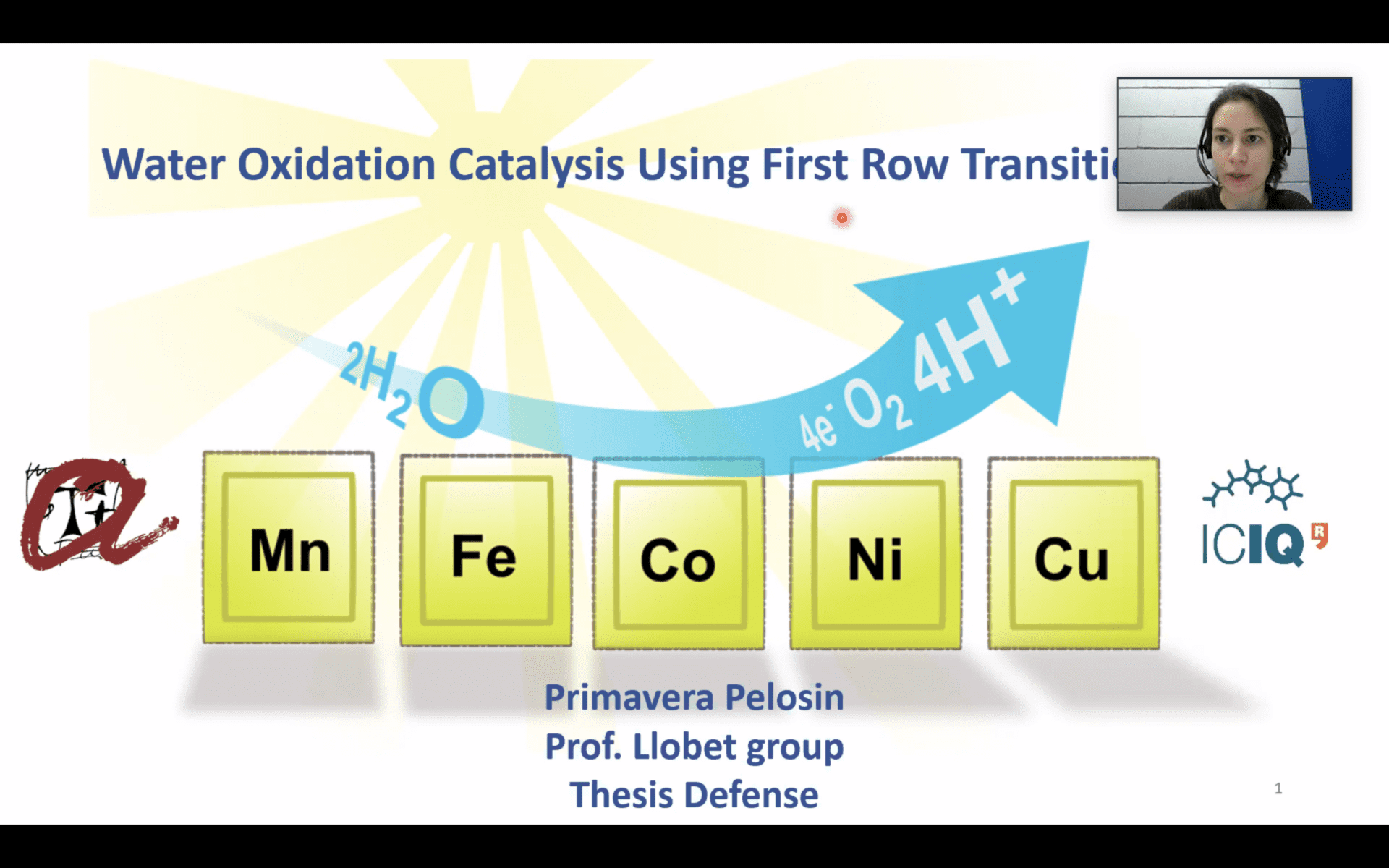Congratulations, Dr. Pelosin!
Primavera Pelosin, PhD student under the supervision of Prof. Antoni Llobet (ICIQ), has virtually defended her PhD thesis entitled “Water Oxidation Catalysis Using First Row Transition Metals” (assigned to the Physical and Inorganic Chemistry Department of the Universitat Rovira i Virgili) publicly on December 22nd.
The members of the evaluation committee were: Dr. Elisabetta Iengo (University of Trieste, Dr. Martin Albrecht (University of Bern) and Dr. Jordi Garcia-Anton (Universitat Autònoma de Barcelona.
Dr. Pelosin is from the Veneto region, in Italy. She did her bachelor’s in chemistry and Master’s in Organic and Biomolecular Chemistry at the University of Trieste. In 2016 she began her PhD in ICIQ’s Llobet group. She enjoys going to the beach, playing volley and reading comics.
Why did you become a scientist?
Science has intrigued me since I was a child. When I grew up, I found myself drawn to the scientific subjects in school.
From the lessons learnt at ICIQ, which one do you value the most?
There are different things I value from my time at ICIQ, but think the weekly seminars have been very important to me.
What will you miss the most from ICIQ?
I will miss the friends I have made during this PhD: it will be strange not seeing them every day!
What advice do you have for someone who’s starting their PhD now?
My advice would be: prepare yourself to invest a lot of your time and effort into your PhD, don’t expect results to happen overnight and enjoying the ride as much as you can. I think that’s the best way to come out at the end of your PhD with the same passion for what you do than on your first day.
Where are you going next? What will you do there?
I am currently looking for a job outside of research, hopefully in Industry. I know there are a lot of important Chemical and Material Science companies with offices and plants in Catalunya, so my first option is to look for something here. I know these are difficult times, but I remain positive.
If you were a piece of lab equipment, what would you be?
A spatula! Because it’s a small tool that everyone uses but maybe we don’t value it enough, it’s necessary for everyday work in the lab.
Related news

Let's create a brighter future
Join our team to work with renowned researchers, tackle groundbreaking
projects and contribute to meaningful scientific advancements








 20-12-2024
20-12-2024 


















